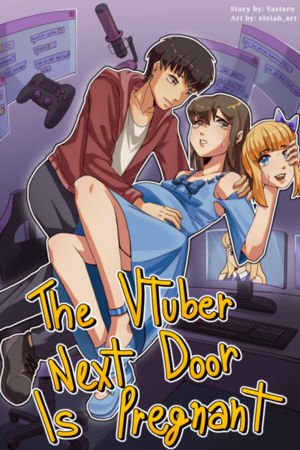Chapter 18:
A Performance to Remember
The Bard
“A marriage? More like shackles.”
-Excerpt from “Tales of the Rune-Bard”
I hadn’t planned on getting nervous, but the second I stepped onto the stage, I felt it—a buzzing tension coiling in my stomach like a spring. The ballroom was filled to the brim with lords and ladies dressed in shimmering silks and velvets, glittering with jewels and polished medals, but I only had eyes for one person. Elma.
She wore black, a deliberate affront to Count Cannáed . She looked radiant—dignified, mournful, and breathtaking all at once. As I began my first set, I caught her eye across the dance floor. For a split second, her expression faltered. Her lips parted in surprise, and she clutched her fan tighter. Then, just as quickly, her composure snapped back into place, and she turned away.
I played. It was like lightning in a clear sky, waves on an empty beach, and a zephyr through spinning leaves. The music poured out of me—lighter tunes at first, enough to keep the dancers spinning, the nobles content. But I kept glancing over at her, hoping for another look. A sign.
When the first set ended, I took my bow and stepped down from the platform, slipping into the periphery of the party like I belonged there. I barely made it a dozen steps before I saw her cutting through the crowd toward me. Her posture was rigid, her face neutral. I prepared myself for the storm.
“You,” she hissed when she was close enough. “What are you doing here?”
I smiled, too wide. “You heard me play. Thought I’d entertain the capital’s elite.”
“Don’t play dumb, Deryth. You said you would leave.”
I held my hands up. “No, you told me to leave."
“You’re jeopardizing everything,” she whispered fiercely. “My father is on edge. The count has eyes everywhere. If they figure out who you are—”
“I’m not afraid of them,” I said quietly. “I came here because I had to tell you something.”
Her eyes narrowed, but she didn’t interrupt. I took a shaky breath.
“I love you, Elma. I have for a long time. I just didn’t say it because I thought it’d make things worse. But not saying it made everything worse anyway. So, there it is.”
She blinked rapidly. For a moment I thought she might slap me. Or cry. Or both.
Instead, she just asked, “What are you planning to do?”
I reached into my coat and handed her the letter. “Read this. It’s from Zygan. If you still want me to leave afterward, I will. But if you want me to fight—really fight—I’ll do it.”
She stared at the letter like it was made of hot coals. Then, with a terse nod, she took it and walked away without another word.
I went back to the stage and prepared for my next performance. This one was different.
As I plucked the opening chords, the atmosphere in the room shifted. It wasn’t a dance tune or background music anymore. It was a story.
A story of a count who lured young girls to his estate with promises of safety and splendor, only to break them in the dark, behind closed doors. I watched Elma in the distance, sitting at a lonely table far from the crowd, reading Zygan’s letter with trembling hands. It had arrived only that morning, a blessing for which I was eternally grateful. My old friend had pulled through for me.
The nobles began to murmur. Some furrowed their brows, puzzled. Others leaned closer, their expressions darkening. The melody turned grim, ominous. The next verses told of a bard—an unremarkable man, born to nothing—who dared to challenge the count’s rule, all for the sake of a girl.
“You insolent little worm!” A man shouted.
I continued playing, ignoring the man I presumed to be the Count. Guards stepped forward. For a moment, I thought I’d be struck down then and there. But before they could grab me, the doors to the ballroom slammed open.
“Lord Ulbrieth, requesting an audience,” a herald called.
And there he was—Ulbrieth himself, tall and severe in gleaming armor, flanked by four knights bearing his heraldry—a black lion against a foreground of red and black stripes.. He moved with purpose, a letter in one hand, the other resting loosely on the hilt of his sword. Around the room, nobles gasped, a few even recoiled.
“I apologize for the interruption,” Ulbrieth said, voice calm. “I bear grave news and wished to present it to His Grace without delay.”
Cannáed stormed toward him, red-faced. “You bastard! You dare show your face here, I ordered you to stay in—”
Ulbrieth didn’t look at him. He bowed deeply before the Duke. “My Lord Ahlríon. I bring evidence of foul deeds committed by Count Cannáed. Crimes against the honor of this court. Crimes against the realm.”
The room was silent. Rhys Ahlríon accepted the letter with a slow, cautious hand. He read it without a word. The silence stretched. His hands started to shake, and he crushed the letter, clearly struggling to maintain his composure.
“Guards,” the Duke said, his voice like iron. “Arrest Count Cannáed.”
“No!” Cannáed barked. “You can’t! This is a farce! A lie! On what authority do you accuse me?” He bellowed as the guards approached, drawing back. “You think you’ll survive this, bard? I’ll—”
He didn’t get to finish. The guards seized him, hauling him toward the doors as he kicked and spat.
“And arrest the bard,” the Duke added suddenly. My breath caught. Elma stood halfway out of her chair. Ulbrieth turned sharply, surprised.
“My lord?” Ulbrieth asked.
“He deceived my household. Lied to enter my court. Disrupted a ceremony of state. I will not have this kind of treachery go unanswered.”
Two more guards approached, and this time, I didn’t move.
Elma ran toward us. “No! Please—he only did it to protect me—!”
“Enough,” the Duke said, raising a hand. “There will be no further spectacle tonight.”
I let the guards take my arms. The crowd watched, some in awe, others in disgust. But as I glanced back at Elma, I saw something else. Not grief. Not despair. Resolve. And maybe, just maybe that was enough.




Please sign in to leave a comment.